‘Pale Blue Eye’ author breaks down shocking twist ending of Netflix murder mystery
- Oops!Something went wrong.Please try again later.
- Oops!Something went wrong.Please try again later.
- Oops!Something went wrong.Please try again later.
Spoiler alert: This post contains details about the ending of Netflix’s “The Pale Blue Eye” (now streaming). Stop reading now if you haven’t seen the movie.
"Believe nothing you hear, and only one half that you see."
It's a famous maxim by Edgar Allan Poe that also works as a thesis for Netflix's twisty "The Pale Blue Eye" (now streaming). Adapted from Louis Bayard's 2003 novel, the historical fiction thriller follows grieving detective Augustus Landor (Christian Bale) as he investigates the grisly murders of several cadets at the West Point military academy in the 1830s. "Harry Potter" alum Harry Melling plays Poe, then a cadet and aspiring writer, who aids Landor with the case.
Bayard and Melling tell us about the movie's real-life history and shocking ending:
Harry Melling: 'Harry Potter' star addresses J.K. Rowling transphobia controversy
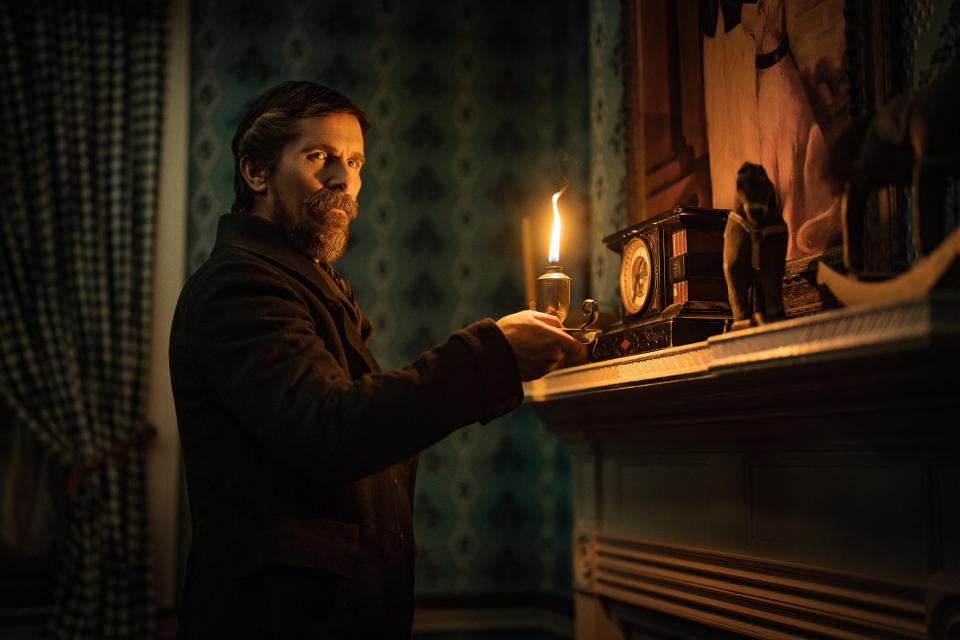
'The Pale Blue Eye' is not a true story
The movie features other real-life characters including Generals Sylvanus Thayer (Timothy Spall) and Ethan Allen Hitchcock (Simon McBurney) who worked at West Point. But the story itself is entirely fictional.
"There's really only one truthful part of this, which is that Edgar Allan Poe did spend six months at West Point," Bayard says. "That's something that surprises people. It's the reason I chose this setting because a lot of people don't know that he was there. And West Point has certainly never made a point of advertising that connection either; I think they're a little embarrassed by him."
Christian Bale reveals why Gorr's 'never-ending' scream was too freaky for 'Thor: Love and Thunder'
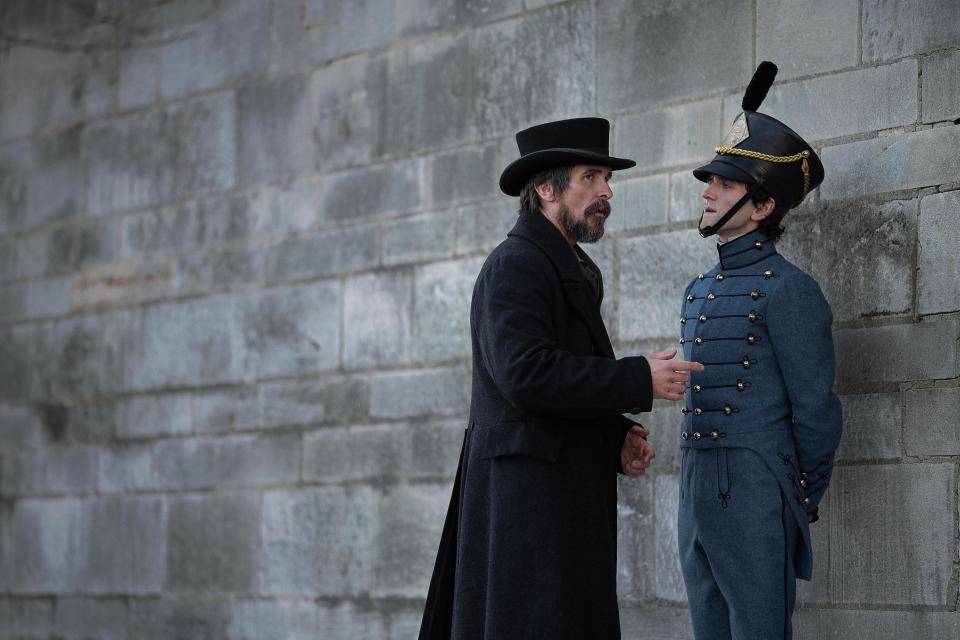
The movie shows a different side of Edgar Allan Poe
Melling's introduction to Poe was in a 1990 Halloween episode of "The Simpsons," before he read "The Raven" and "The Tell-Tale Heart" in school. But "Pale Blue Eye" subverted his expectations of the author, who died at 40 in 1849.
"In some ways, it does reinvent the idea of who Poe is," Melling says. "I think a lot of people will come into this film with an idea of this very dark, moody, somber character. What I quite enjoyed is that he's actually quite a chipper and eccentric character who is constantly trying to dazzle people."
Poe's parents died when he was very young and he had a contentious relationship with his foster father, who moved the family between Virginia and the U.K. Melling used the writer's "very nomadic, lonely existence" to help inform his relationship with the fictional Landor.
"It made sense to me why he would attach himself in such a strong way to this detective," Melling says. "Maybe in Landor that sense of having a father is fulfilled in some way."
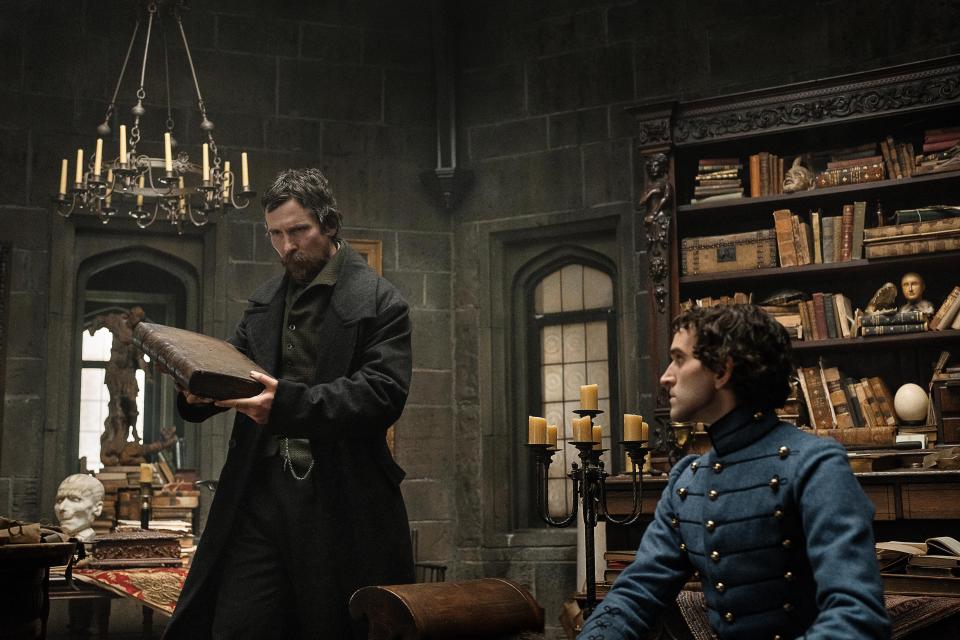
That 'very shocking' twist pays homage to Agatha Christie
Landor and Poe's investigation leads them to Julia Marquis (Gillian Anderson), whose daughter Lea (Lucy Boynton) suffers seizures and practices black magic as a cure. Poe believes Lea might have killed the cadets as part of an occult ritual until he discovers that Landor's handwriting matches a note on one of the dead bodies.
In the end, it's revealed that Landor murdered the young men after his daughter was raped by cadets two years earlier. The assault drove her to suicide and Landor wanted revenge.
"We're all capable of anything under the right circumstances," Bayard says. "This is a character who has dedicated his career to apprehending criminals and enforcing justice. And yet when his own daughter is taken from him, the usual institutions are no longer sufficient. He has to take matters into his own hands."
The twist is borrowed from Agatha Christie's "The Murder of Roger Ackroyd," in which the narrator turns out to be the murderer.
"That was very shocking back in 1926, and I think it's still surprising today," Bayard says. "We bring certain assumptions to stories: We don't think a detective is going to be investigating his own crime. He's our surrogate, so the fact that he knows all along he's done it is a surprise."
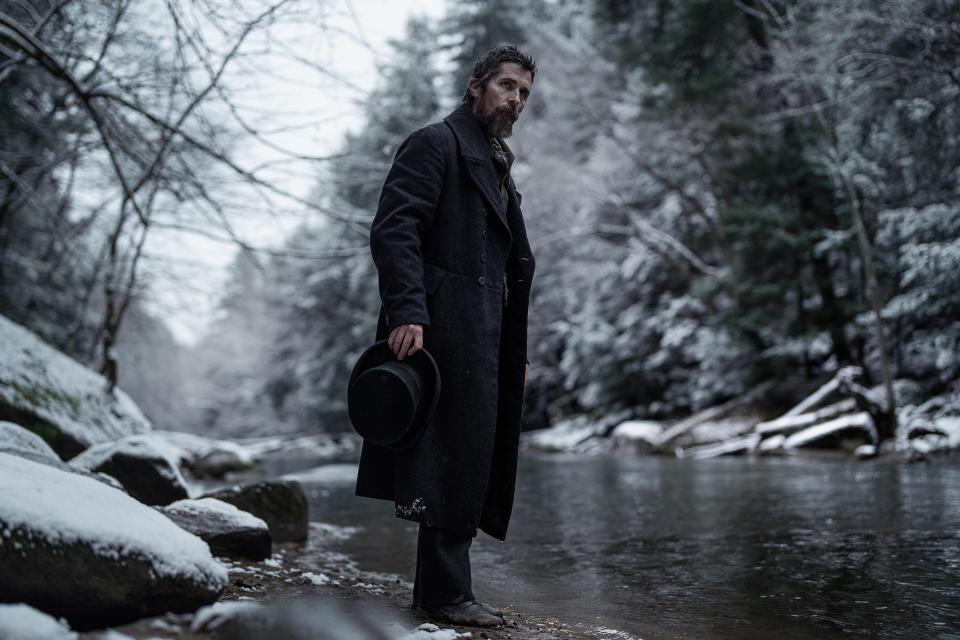
Look closely, and you can find Easter eggs about Christian Bale's character
Watching the movie again after learning the culprit's identity, viewers may pick up some hints that it was Landor all along.
"That very opening scene where you see Landor's character washing his hands in the stream – it turns out later that he's washing a bloody implement," Bayard says. "And the scene he has with Thayer and Hitchcock about (West Point) and how it warps cadets by forcing them to follow all these rules – I think Landor is very much thinking in that moment about the cadets who assaulted his daughter.
"When you look back, you can see that Landor's attitude toward the whole military establishment is pretty hostile, and it has to come from his own experience and his daughter's experience."
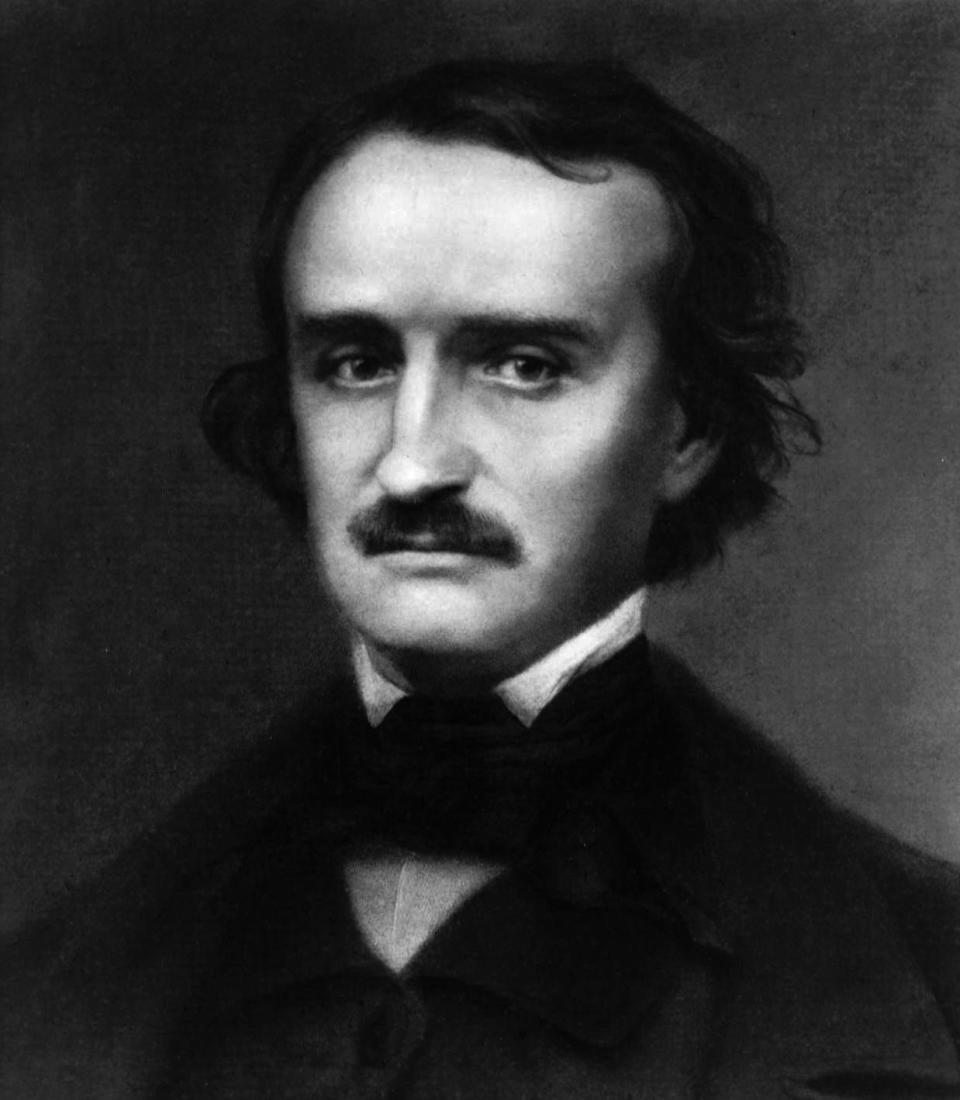
Poe's 'fearless' work has inspired other detective stories
Melling considers Poe the "godfather" of the mystery genre, inspiring everyone from horror author H.P. Lovecraft to "Sherlock Holmes" creator Arthur Conan Doyle. His fingerprints can even be seen on recent whodunits "See How They Run" and "Glass Onion: A Knives Out Mystery."
"You see his influence everywhere," Melling says. "He's one of those writers who's such a part of our storytelling language now."
Bayard believes Poe's writing continues to resonate because of his keen observations about human behavior and obsessions.
"He was fearless," Bayard says. "He plunged into areas that most of us are afraid to go in and found these unpleasant truths about us. He knew what we're capable of doing and didn't hide from that in his work. He explored it. And I think that's why his work affects us on a really subconscious level: It gets at the stuff of nightmares."
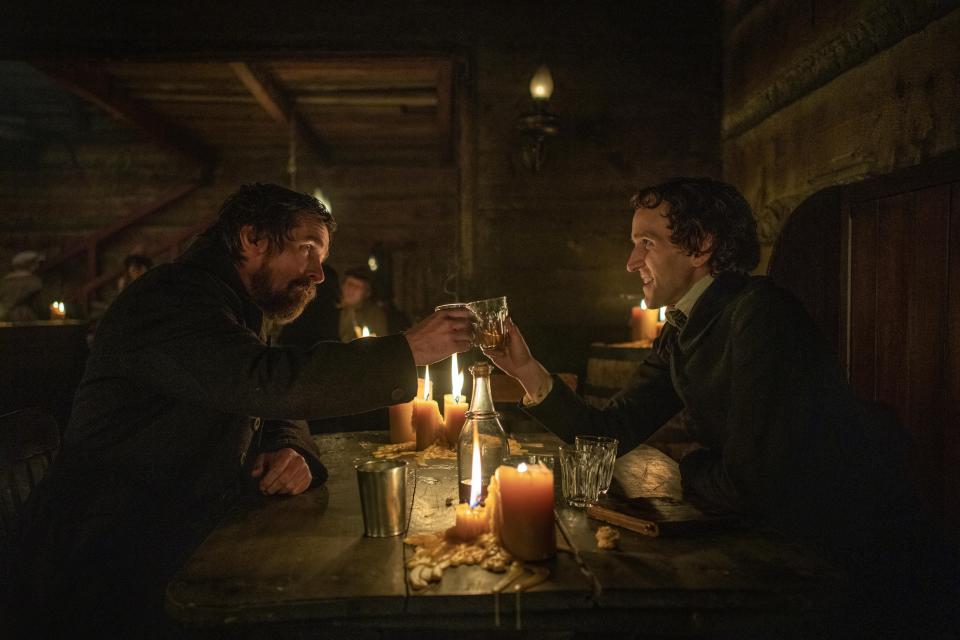
This article originally appeared on USA TODAY: ‘Pale Blue Eye’ ending: Edgar Allan Poe film has big twist (spoilers!)

